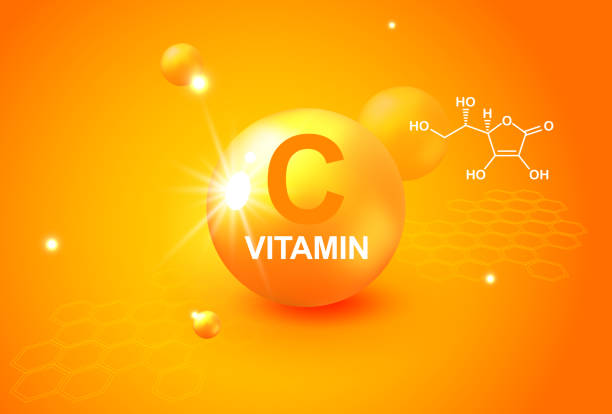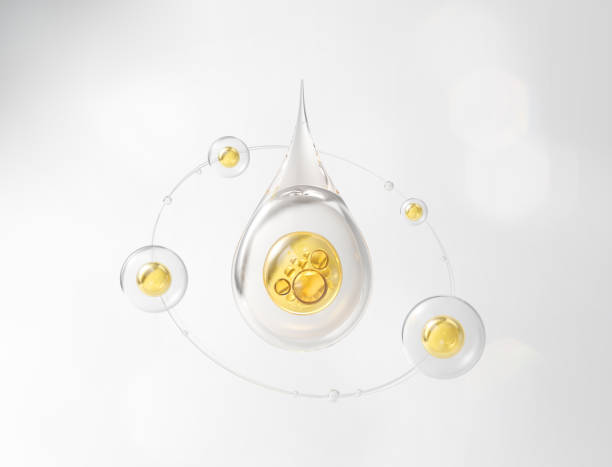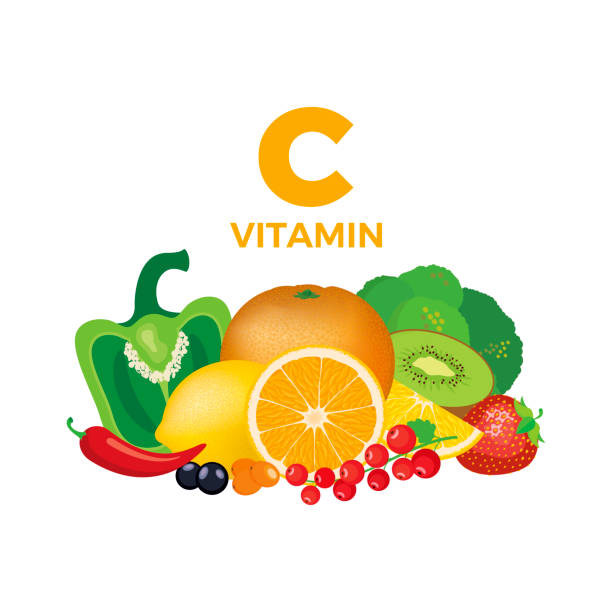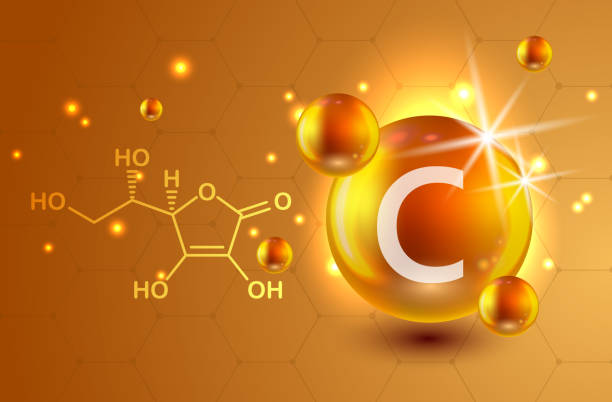
In the realm of essential nutrients, few shine as brightly as vitamin c. Also known as ascorbic acid, this water-soluble vitamin is renowned for its role in maintaining overall health and well-being. Beyond its reputation for warding off the common cold, Vitamin C plays a crucial part in numerous bodily functions, making it a cornerstone of a balanced diet. Let’s delve into the myriad benefits, sources, and significance of this remarkable nutrient.
Understanding Vitamin C:
Vitamin C, scientifically known as ascorbic acid, is a water-soluble vitamin renowned for its multifaceted roles in maintaining optimal health. Beyond its reputation as a cold-fighting powerhouse, this essential nutrient serves as a potent antioxidant, scavenging harmful free radicals to protect cells from oxidative damage. Integral to collagen synthesis, Vitamin C contributes to the structural integrity of tissues throughout the body, promoting healthy skin, bones, and blood vessels. Moreover, it plays a pivotal role in bolstering the immune system by enhancing the production and function of white blood cells, our body’s frontline defenders against infections. Additionally, Vitamin C aids in the absorption of iron from plant-based foods, supporting overall nutrient utilization and vitality. Its significance spans far and wide, making it an indispensable component of a balanced diet and a cornerstone of overall well-being.

Functions of Vitamin C:
Vitamin C, also known as ascorbic acid, is a crucial nutrient that performs a multitude of functions within the human body. Its diverse roles contribute to overall health and well-being, impacting various physiological processes. Here’s a detailed exploration of the functions of Vitamin C:
-
Antioxidant Activity:
One of the most well-known functions of Vitamin C is its potent antioxidant activity. As an antioxidant, Vitamin C scavenges harmful free radicals, which are highly reactive molecules produced during normal metabolic processes or in response to environmental stressors such as pollution, UV radiation, and toxins. By neutralizing free radicals, Vitamin C helps prevent oxidative damage to cells, lipids, proteins, and DNA, thereby reducing the risk of chronic diseases like cancer, cardiovascular diseases, and aging-related conditions.
-
Collagen Synthesis:
Vitamin C plays a crucial role in the synthesis of collagen, a structural protein abundant in connective tissues such as skin, tendons, ligaments, and blood vessels. Collagen provides strength, elasticity, and structural integrity to these tissues, contributing to their proper function. Vitamin C is required for the enzymatic hydroxylation of proline and lysine residues in collagen precursor molecules, a process essential for the formation of stable collagen triple helices. Without adequate Vitamin C, collagen synthesis is impaired, leading to weakened connective tissues and manifestations such as poor wound healing, easy bruising, and skin fragility.
-
Immune Function:
Vitamin C is integral to the optimal functioning of the immune system. It enhances various immune mechanisms, including the production and activity of white blood cells such as lymphocytes, neutrophils, and phagocytes, which play key roles in defending the body against pathogens like bacteria, viruses, and fungi. Vitamin C supports the proliferation and differentiation of immune cells, promotes the production of cytokines and antibodies, and aids in the clearance of pathogens and infected cells. Adequate Vitamin C intake is associated with improved resistance to infections and faster recovery from illnesses.
-
Iron Absorption:
Vitamin C enhances the absorption of non-heme iron, the type of iron found in plant-based foods and iron-fortified products. By reducing ferric iron (Fe^3+) to ferrous iron (Fe^2+), a more absorbable form, Vitamin C facilitates its uptake by intestinal cells. This synergistic effect enhances iron bioavailability and helps prevent iron deficiency anemia, a common nutritional disorder characterized by low hemoglobin levels and impaired oxygen transport. Combining Vitamin C-rich foods with iron sources can optimize iron absorption, especially in individuals with increased iron requirements or those at risk of deficiency, such as pregnant women, infants, and vegetarians/vegans.
- Neurotransmitter Synthesis:
Vitamin C is involved in the biosynthesis of neurotransmitters, chemical messengers that facilitate communication between nerve cells (neurons) in the brain and nervous system. Specifically, Vitamin C serves as a cofactor for the enzyme dopamine β-hydroxylase, which catalyzes the conversion of dopamine to norepinephrine, a neurotransmitter involved in mood regulation, stress response, and cognitive function. By supporting neurotransmitter synthesis, Vitamin C may modulate mood, cognition, and stress resilience, although further research is needed to elucidate its precise effects on brain health and mental well-being.
-
Wound Healing:
Vitamin C plays a critical role in wound healing and tissue repair processes. Collagen synthesis is essential for the formation of new skin tissue and the closure of wounds, including cuts, abrasions, and surgical incisions. By promoting collagen production and cross-linking, Vitamin C accelerates the proliferation and migration of fibroblasts (cells involved in connective tissue formation), enhances angiogenesis (the formation of new blood vessels), and strengthens the extracellular matrix, facilitating the remodeling and closure of wounds. Adequate Vitamin C levels are essential for optimal wound healing outcomes, and deficiencies can impair healing and increase susceptibility to infections.
-
Antihistamine Activity:
Vitamin C exhibits mild antihistamine properties, which may help alleviate symptoms associated with allergies, such as nasal congestion, sneezing, itching, and inflammation. By inhibiting the release of histamine, a compound involved in allergic reactions and inflammatory responses, Vitamin C may mitigate allergic symptoms and improve respiratory function. While it’s not a replacement for conventional allergy treatments, Vitamin C supplementation or consumption of Vitamin C-rich foods may offer complementary support for individuals with allergic conditions.
-
Protection Against Environmental Stress:
Vitamin C serves as a protective agent against various environmental stressors, including ultraviolet (UV) radiation, air pollution, heavy metals, and cigarette smoke. As an antioxidant, Vitamin C helps neutralize reactive oxygen species (ROS) generated by environmental pollutants and toxins, reducing oxidative damage to skin cells and tissues. Additionally, Vitamin C supports the repair mechanisms that counteract the harmful effects of UV radiation on the skin, such as DNA damage, inflammation, and photoaging. Topical application of Vitamin C formulations may enhance skin barrier function, collagen synthesis, and antioxidant defense, offering photoprotective benefits and promoting skin health.
vitamin c benefits
Vitamin C, also known as ascorbic acid, is a powerhouse nutrient with a wide array of benefits for overall health and well-being. From supporting the immune system to promoting skin health and beyond, its multifaceted roles make it an indispensable part of a balanced diet. Let’s delve into the detailed benefits of Vitamin C:

-
Immune System Support:
It enhances the production and activity of various immune cells, including white blood cells such as lymphocytes and phagocytes, which play crucial roles in defending the body against infections. Vitamin C also promotes the production of cytokines, signaling molecules that regulate immune responses, and enhances the function of the skin’s protective barrier against pathogens. Adequate intake of Vitamin C has been associated with reduced susceptibility to infections and faster recovery from illnesses such as the common cold and flu.
-
Antioxidant Protection:
One of the most well-known benefits of Vitamin C is its potent antioxidant activity. As an antioxidant, Vitamin C scavenges harmful free radicals and reactive oxygen species (ROS) generated during normal metabolic processes or in response to environmental stressors such as pollution, UV radiation, and toxins. By neutralizing free radicals, Vitamin C helps protect cells, lipids, proteins, and DNA from oxidative damage, thereby reducing the risk of chronic diseases like cancer, cardiovascular diseases, and aging-related conditions.
-
Collagen Synthesis and Skin Health:
Vitamin C plays a crucial role in collagen synthesis, the process by which collagen, a structural protein, is formed and maintained in the body. Collagen provides strength, elasticity, and structural integrity to tissues such as skin, tendons, ligaments, and blood vessels. By supporting collagen production and cross-linking, vitamin c serum promotes skin health, elasticity, and wound healing. It helps reduce the appearance of wrinkles, fine lines, and age spots, and may protect against UV-induced skin damage and photoaging when applied topically.
-
Wound Healing and Tissue Repair:
Vitamin C is essential for optimal wound healing and tissue repair processes. It promotes the proliferation and migration of fibroblasts, cells involved in connective tissue formation, and enhances angiogenesis, the formation of new blood vessels, which are critical for supplying nutrients and oxygen to healing tissues. Vitamin C also strengthens the extracellular matrix and facilitates the remodeling and closure of wounds. Adequate Vitamin C levels are necessary for efficient wound healing, and deficiencies can impair healing and increase susceptibility to infections.
-
Iron Absorption:
Vitamin C enhances the absorption of non-heme iron, the type of iron found in plant-based foods and iron-fortified products. By reducing ferric iron (Fe^3+) to ferrous iron (Fe^2+), a more absorbable form, Vitamin C facilitates its uptake by intestinal cells. This synergistic effect improves iron bioavailability and helps prevent iron deficiency anemia, a common nutritional disorder characterized by low hemoglobin levels and impaired oxygen transport. Combining Vitamin C-rich foods with iron sources can optimize iron absorption, especially in individuals with increased iron requirements or those at risk of deficiency.
-
Cardiovascular Health:
Vitamin C may benefit cardiovascular health by several mechanisms. It has been associated with lower blood pressure levels, possibly due to its ability to improve endothelial function, which refers to the health of the blood vessels’ inner lining. Vitamin C’s antioxidant properties may also help prevent the oxidation of LDL cholesterol, a key factor in the development of atherosclerosis, or hardening of the arteries. Additionally, Vitamin C may reduce inflammation and improve blood vessel dilation, contributing to overall cardiovascular function and reducing the risk of heart disease and stroke.
-
Brain Health and Cognitive Function:
Emerging research suggests that Vitamin C may play a role in brain health and cognitive function. As an antioxidant, Vitamin C helps protect brain cells from oxidative stress and inflammation, which are implicated in neurodegenerative diseases such as Alzheimer’s and Parkinson’s. Vitamin C also supports neurotransmitter synthesis, facilitating the production of dopamine, norepinephrine, and serotonin, which are involved in mood regulation, stress response, and cognitive processes such as learning and memory. Adequate intake of Vitamin C may help preserve cognitive function and reduce the risk of age-related cognitive decline.
-
Eye Health and Vision:
Vitamin C is beneficial for eye health and vision, particularly in reducing the risk of age-related macular degeneration (AMD), a leading cause of vision loss in older adults. As an antioxidant, Vitamin C helps protect the retina from oxidative damage and inflammation, which are involved in the pathogenesis of AMD. Additionally, Vitamin C supports the health of the blood vessels in the eyes and may reduce the risk of cataracts, clouding of the lens that can impair vision. Consuming a diet rich in Vitamin C-containing foods may help maintain optimal eye health and preserve visual function with age.
In conclusion, it offers a multitude of benefits for overall health and well-being, ranging from immune system support and antioxidant protection to collagen synthesis, wound healing, and beyond. Incorporating Vitamin C-rich foods into the diet or considering supplementation can help ensure adequate intake and reap the myriad benefits that this essential nutrient has to offer. However, it’s important to consume it as part of a balanced diet and avoid excessive intake, as high doses may lead to gastrointestinal discomfort or other adverse effects. Consulting with a healthcare professional or registered dietitian can provide personalized guidance on Vitamin C intake and supplementation based on individual needs and health considerations.
Sources
It is also known as ascorbic acid, is abundant in various fruits, vegetables, and other dietary sources. Consuming a diverse range of vitamin c foods is essential for meeting daily requirements and maintaining optimal health. Here’s a detailed exploration of the sources of Vitamin C:

Citrus Fruits:
Oranges, lemons, limes, grapefruits, and tangerines are all vitamin c fruits. Consuming these fruits whole or as fresh juices can provide a significant portion of your daily intake.
Berries:
Berries such as strawberries, raspberries, blueberries, and blackberries are excellent sources of it. These colorful fruits are not only delicious but also packed with antioxidants and other nutrients, making them valuable additions to your diet.
Tropical Fruits:
Tropical fruits like mangoes, papayas, pineapples, and kiwifruits are rich sources of it. These fruits not only provide a sweet and tangy flavor but also offer a substantial amount of this essential nutrient.
Bell Peppers:
Bell peppers, particularly red and yellow varieties, are exceptionally high in it. Adding bell peppers to salads, stir-fries, or sandwiches can boost your intake significantly.
Cruciferous Vegetables:
Cruciferous vegetables such as broccoli, Brussels sprouts, cauliflower, and kale are notable sources of it. These vegetables are not only rich in fiber and other essential nutrients but also provide a significant amount of it per serving.
Leafy Greens:
Leafy green vegetables like spinach, Swiss chard, collard greens, and mustard greens contain it as well. While they may not be as high in it as some other fruits and vegetables, they still contribute to overall intake and offer numerous health benefits.
Tomatoes:
Tomatoes are a versatile source of it that can be enjoyed fresh, cooked, or in various processed forms such as tomato sauce, paste, and juice. They also contain other beneficial compounds like lycopene, which has antioxidant properties.
Potatoes:
Potatoes, particularly sweet potatoes and red potatoes, are surprisingly good sources of it. Consuming them with the skin on provides the highest Vitamin C content, along with fiber and other nutrients.
Citrus Zests:
The zest or peel of citrus fruits contains higher concentrations of it compared to the flesh. Using citrus zest in cooking, baking, or as a garnish can add flavor and boost your intake.
Other Fruits and Vegetables:
Several other fruits and vegetables contain moderate amounts of it, including guavas, cantaloupes, watermelons, cranberries, asparagus, cabbage, green peas, and squash.
In addition to whole foods, it is also found in some fortified food products such as breakfast cereals and fruit juices. However, it’s important to prioritize whole, minimally processed foods as the primary sources of it to ensure adequate intake of other essential nutrients and beneficial phytochemicals. Overall, incorporating a variety of it-rich foods into your diet on a daily basis is key to meeting your nutritional needs and supporting optimal health.

Vitamin C Requirements
Its also known as ascorbic acid, is an essential nutrient that must be obtained through the diet as the human body cannot produce it on its own. Understanding the recommended daily intake of it is crucial for maintaining optimal health and preventing deficiency-related health problems. Here’s a detailed exploration of it requirements:
-
Recommended Dietary Allowance (RDA):
The Recommended Dietary Allowance (RDA) for it varies depending on age, sex, life stage, and specific physiological conditions. The RDA represents the average daily intake level sufficient to meet the nutrient requirements of nearly all healthy individuals in a particular age and gender group. The current RDAs for it established by the Institute of Medicine (IOM) are as follows:
-
- Infants (0-6 months): 40 milligrams (mg) per day
- Infants (7-12 months): 50 mg per day
- Children (1-3 years): 15 mg per day
- Children (4-8 years): 25 mg per day
- Children (9-13 years): 45 mg per day
- Males (14-18 years): 75 mg per day
- Females (14-18 years): 65 mg per day
- Females (19 years and older): 75 mg per day
- Pregnant females: 85 mg per day
- Breastfeeding females: 120 mg per day
-
Tolerable Upper Intake Level (UL):
The Tolerable Upper Intake Level (UL) represents the maximum daily intake unlikely to cause adverse health effects in most individuals. Exceeding the UL may increase the risk of adverse effects such as gastrointestinal upset, diarrhea, and kidney stone formation, particularly in sensitive individuals. The current ULs for its established by the IOM are as follows:
-
- Infants (0-12 months): Not established (breast milk provides adequate amounts)
- Children (1-3 years): 400 mg per day
- Children (4-8 years): 650 mg per day
- Children (9-13 years): 1,200 mg per day
- Adolescents (14-18 years): 1,800 mg per day
- Adults (19 years and older): 2,000 mg per day
-
Special Populations:
Certain population groups may have higher its requirements due to physiological factors, health conditions, or lifestyle factors. For example:
-
- Smokers: smokers are advised to consume an additional 35 mg of it per day compared to non-smokers.
- Individuals with certain medical conditions: Conditions that increase its requirements include chronic diseases, infections, surgeries, burns, and conditions associated with increased oxidative stress or inflammation.
- Pregnant and breastfeeding women: Pregnancy and lactation increase the demand for it to support maternal health, fetal development, and breast milk production.
-
Bioavailability Factors:
The bioavailability of it can be influenced by various factors, including dietary sources. Food processing methods, cooking techniques, and individual differences in absorption and metabolism. Its from natural food sources such as fruits and vegetables is typically more bioavailable. Than synthetic forms found in supplements. Additionally, cooking, storage, and processing methods can affect the content of foods. with prolonged exposure to heat, light, and air leading to degradation and loss of it.
In conclusion, meeting the recommended daily intake of it is essential for maintaining optimal health. And preventing deficiency-related health problems. Is the best way to ensure adequate intake of this essential nutrient. For individuals with specific health conditions. Or lifestyle factors that may increase its requirements, consulting with a healthcare professional. Or registered dietitian can provide personalized guidance on meeting nutritional needs and optimizing its intake.

Potential Risks of vitamin c deficiency
Not having enough Vitamin C, also called hypovitaminosis C or scurvy. Can lead to a range of adverse health effects due to its crucial role in various physiological processes. Here are some potential risks associated with it deficiency:
-
Impaired Immune Function:
It is really important for helping your immune system by boosting the production and effectiveness of white blood cells. These cells are key for protecting your body from infections. A deficiency in it can weaken the immune response, increasing susceptibility to infections. And prolonging the duration and severity of illnesses such as the common cold, flu, and respiratory infections.
-
Delayed Wound Healing:
It is essential for collagen synthesis, a process vital for wound healing and tissue repair. Collagen provides structural support to skin, blood vessels, tendons, and other tissues, and its formation is dependent on Vitamin C. Inadequate Vitamin C levels can impair collagen production, leading to delayed wound healing. Poor scar formation, and increased susceptibility to infections.
- Bleeding Gums and Tooth Loss:
Scurvy is characterized by the classic symptoms of bleeding gums, loose teeth, and poor dental health. Its deficiency weakens the connective tissues. That support the teeth and gums, leading to inflammation, bleeding, and eventually tooth loss. Without adequate Vitamin C, the collagen-rich matrix in the gums breaks down, resulting in gingivitis, periodontal disease, and dental decay.
-
Fatigue and Weakness:
Its deficiency can manifest as general fatigue, and weakness. And lethargy due to its roles in energy metabolism and iron absorption. A compound involved in the transport of fatty acids into mitochondria for energy production. Moreover, It helps improve the absorption of non-heme iron from plant-based foods. Iron deficiency anemia can contribute to fatigue and weakness.
-
Joint Pain and Swelling:
Joint symptoms such as pain, swelling, and stiffness may occur in individuals with it deficiency. Due to impaired collagen synthesis and connective tissue integrity. Collagen is a major component of cartilage, the tissue that cushions and protects joints. Without sufficient Vitamin C, the production of collagen is disrupted, leading to joint degradation and discomfort.
- Easy Bruising and Petechiae:
It deficiency can cause increased fragility of blood vessels due to weakened collagen structure. Petechiae (small red or purple spots under the skin), and spontaneous bleeding from mucous membranes. These symptoms are characteristic features of scurvy and reflect the breakdown of blood vessel integrity.
-
Anemia:
Although Vitamin C deficiency itself does not cause anemia. It can exacerbate iron deficiency anemia by impairing the absorption of non-heme iron from plant-based foods. Iron is essential for the production of hemoglobin, the oxygen-carrying protein in red blood cells. Inadequate it levels can hinder iron absorption, leading to reduced hemoglobin synthesis and anemia. Characterized by fatigue, weakness, pallor, and shortness of breath.
-
Increased Oxidative Stress:
It is a potent antioxidant that helps neutralize harmful free radicals and reactive oxygen species (ROS) in the body. A deficiency in it can lead to increased oxidative stress and inflammation. Which are implicated in the pathogenesis of various chronic diseases such as cancer. Cardiovascular diseases, and neurodegenerative disorders.
Conclusion:
It stands as a shining example of the critical role that nutrients play in maintaining our health and vitality. From bolstering the immune system to promoting collagen synthesis and protecting against oxidative damage, its benefits are vast and far-reaching. By incorporating Vitamin C-rich foods into our diets and ensuring adequate intake. We can harness the power of this essential nutrient to support our overall well-being for years to come.





